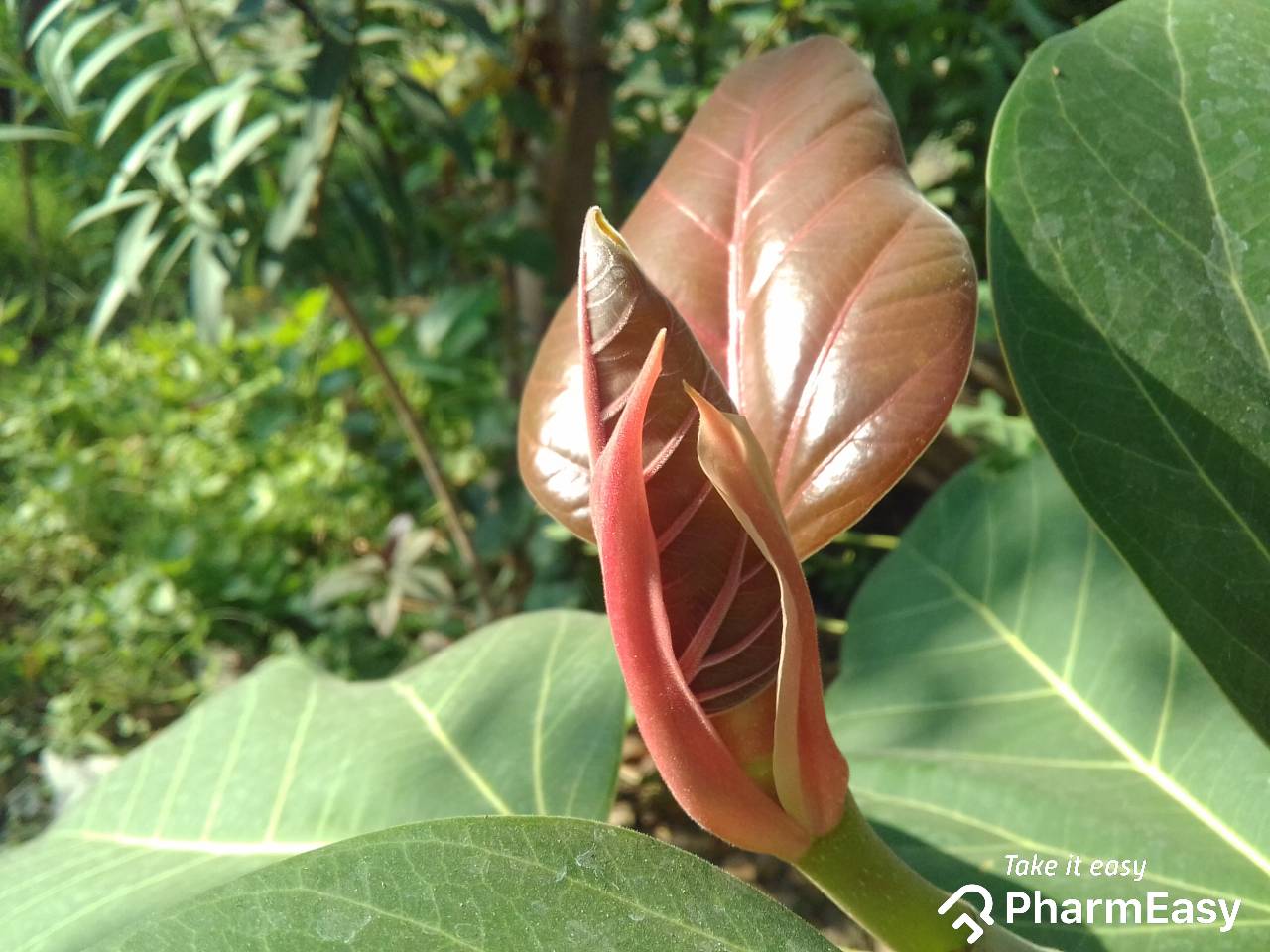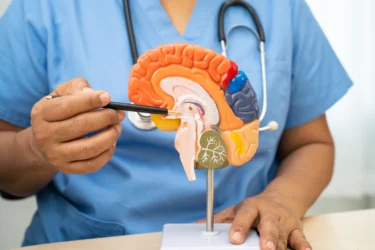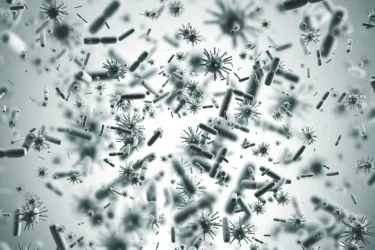Banyan: Benefits, Uses, Side Effects & More!
By Dr Ashok Pal +2 more

Get,

to manage your symptom
Get your,


4 Cr+ families
benefitted

OTP sent to 9988776655



You’ve successfully subscribed to receive
doctor-approved tips on
Whatsapp

Get ready to feel your best.

Hi There,
Download the PharmEasy App now!!


Register to Avail the Offer
Send OTPBy continuing, you agree with our Privacy Policy and Terms and Conditions

Hi There,
Sign up on PharmEasy now!!
Trusted by 4 crore+ families

OTP sent to 9988776655



You have unlocked 25% off on medicines




Code: NU25
By Dr Ashok Pal +2 more
Table of Contents
The banyan tree, scientifically known as Ficus benghalensis, is a large and evergreen tree belonging to the Moraceae family. It is called Bargad in Hindi and Urdu, Banyan, East Indian Fig and Indian Fig in English, and Bahupada or Vat in Sanskrit. It is one of the most critical trees in Indian history. It is the national tree of India. It is grown in India, Pakistan, and Sri Lanka1. It is a woody tree with a long lifespan2. All parts of the Banyan tree: fruits, leaves, roots, and barks are used in ethnomedicine.

Below are the plant parts and their chemical constituents:
The Banyan tree seeds are a rich source of carbohydrates and proteins. In addition, the seeds also contain lipids, fiber, Vitamin C, and Vitamin E. The nutritional value of these seeds is around 130 calories per 100 grams.
The seeds also contain minerals like sodium, potassium, calcium, manganese, iron, chromium, copper and phosphorous5.
The stranger fig or the great banyan, is the widest tree in the world. It starts growing underground and then spreads outwards onto the other nearby trees7.
Dr. Siddharth Gupta, B.A.M.S, M.D (Ayu)
The potential uses of banyan are given as follows:

The anti-diabetic properties of Banyan bark extract have been observed in many animal studies. Oral administration of bark extract has shown blood glucose-reducing benefits by stimulating insulin secretion in animal models. The leaf extract of Banyan has also shown antidiabetic properties in in-vivo studies (animal studies). In addition, the leaf extract could reduce the blood glucose levels in a rat model, signifying the traditional use of leaves as antidiabetic agents4. These properties may have been observed in animal studies. However, more research is required to support the use of banyan in diabetic patients. Therefore, you are advised not to use this herb without consulting your healthcare provider.

Because of the anti-inflammatory benefits of Ficus benghalensis, it may be used in wound healing. The roots and leaves extract could show wound healing properties in animal studies. Leaf extract was able to accelerate the wound-healing process during the trial. The root extract could also promote wound healing4. However, do not use banyan for wound healing as more research is still required to support its use.

As per animal studies, the leaf extract could show anti-ulcer characteristics. The leaf extract could also reduce the damage to the stomach mucosa4. However, if you suffer from stomach ulcers, avoid using banyan as an alternative treatment. Take it only after you have consulted a doctor.
The leaf and root extracts of the banyan tree contain carbohydrates, saponins, alkaloids, and glycosides that have anti-bacterial action against a number of bacteria. These are highly effective against E.coli and K.pneumoniae, which cause diarrhoea and pneumonia, respectively9.
Dr. Smita Barode, B.A.M.S, M.S.

The bark extract of Banyan could show anti-arthritic activity during animal trials4. However, more research is required to support the use of banyan in arthritis. Till then, you are advised not to use banyan for arthritis unless recommended by a doctor.

The extract of latex produced by the Banyan tree, when screened for anticancer activity on cell lines, showed anticancer benefits against colorectal and breast cancer cell lines. In addition, the aerial root extract of the Banyan tree also showed potential anticancer benefits against lung, breast, and cervical cancer4. However avoid using banyan for cancer as more trials on humans are awaited. In addition, do not use any herbal remedy before consulting your healthcare provider.

Oral administration of the latex produced by the Banyan tree showed liver-protective benefits in rats. The latex treatment could improve liver functions during the trial. The fruit extract also showed reduced liver toxicity in laboratory studies. The antioxidant compounds present in the fruits might have contributed to the liver-protective action. The coumarins present in Banyan fruit may also show liver protective activity4.

Immunomodulation means controlling the activity of the immune system by stimulating or suppressing its function. The leaf extract showed immunomodulatory action by stimulating neutrophils (cells involved in the immune response) during an animal study. In addition, the aerial root extract stimulated the production of antibodies in the blood during a trial. The extract could also increase the immune response4. However, if you experience problems with your immune system, talk to a healthcare provider and get a proper diagnosis.
The juice derived from different parts of the banyan tree might be useful for the treatment of rheumatic diseases since it exerts an anti-inflammatory and analgesic effect, along with its regulatory actions on the immune system8.
Dr. Rajeev Singh, BAMS

Oral administration of aerial root extract of the Banyan tree may show anxiety-reducing, muscle-relaxing, memory-enhancing, and seizure-modifying properties, as indicated by several animal studies6. The fruit and bark extract of Banyan could also aid in relieving stress4. However, if you are experiencing any psychological distress, you need to talk to a healthcare provider or psychiatrist.

Banyan root extract showed inhibition of the growth of bacteria during a lab trial. The aerial root extract has also demonstrated some antibacterial properties when tested in labs. Other parts of the Banyan tree, such as leaf, root and fruit extracts, have also shown antibacterial benefits4. However, avoid using banyan for any infection until its prescribed by a qualified doctor. Doing so may worsen the condition.
Though studies show the benefits of banyan in various conditions, these are insufficient and there is a need for further studies to establish the true extent of the benefits of banyan on human health.
The following parts of Banyan can be used:
Your Ayurvedic physician will prescribe the form and dose as per your requirement.
You must consult a qualified doctor before taking banyan or any herbal supplements. Likewise, do not discontinue or replace an ongoing treatment of modern medicine with an ayurvedic/herbal preparation without consulting a qualified doctor.
Also Read: Trikatu Churna: Uses, Benefits and Side Effects by Dr. Rajeev Singh
No data was found on side effects. However, contact your healthcare provider immediately if you experience any mild or severe side effects after using banyan.
Also, before you use banyan or other natural remedies for any condition, make sure you have consulted your healthcare provider about the possible side effects.
Here are some general precautions you need to take before using banyan.
Before using banyan for any health condition, talk to your healthcare provider about the possible precautions of the herb. It will help you avoid unwanted side effects.
Also Read: Madhunashini (Gymnema Sylvestre): Uses, Benefits and Side Effects By Dr. Smita Barode
No data was found on interaction with other drugs. However, if you are taking medicines for any health condition, talk to your healthcare provider about the possible interactions of the medication with other herbs and drugs. It will help you make well-informed choices.
Also Read: Guggul: Uses, Benefits, Side Effects and More!
Banyan trees have a long lifespan, which is more than 100 years2.
The Banyan tree is a large, fast-growing and evergreen tree1.
The scientific name of the Banyan tree is Ficus benghalensis. It belongs to the Moraceae family1.
All the parts of the Banyan tree, including roots (aerial and underground), bark, leaves, fruits and latex, are used in traditional medicine6.
Yes, the Banyan tree has uses in traditional and folk medicine. It is also used in the pharmaceutical industry2. However, you are advised not to use any herb or remedy for a health condition before a doctor’s consultation.
Banyan tree parts such as fruits, leaves, roots, and barks may be used as herbal medicine. These parts may show positive effects on the brain and liver. These parts may also show immunomodulating properties. They may be helpful in many diseases as well, like diabetes and inflammation4. However, before using banyan for these conditions, make sure you have contacted your healthcare provider.
The anti-inflammatory action of leaves and root extracts helps in wound healing. The wound healing properties have been tested in animal studies and are yet to be confirmed in humans through trials4. Therefore, do not use this herb for wound healing unless recommended by a physician.
Disclaimer: The information provided here is for educational/awareness purposes only and is not intended to be a substitute for medical treatment by a healthcare professional and should not be relied upon to diagnose or treat any medical condition. The reader should consult a registered medical practitioner to determine the appropriateness of the information and before consuming any medication. PharmEasy does not provide any guarantee or warranty (express or implied) regarding the accuracy, adequacy, completeness, legality, reliability or usefulness of the information; and disclaims any liability arising thereof.
Links and product recommendations in the information provided here are advertisements of third-party products available on the website. PharmEasy does not make any representation on the accuracy or suitability of such products/services. Advertisements do not influence the editorial decisions or content. The information in this blog is subject to change without notice. The authors and administrators reserve the right to modify, add, or remove content without notification. It is your responsibility to review this disclaimer regularly for any changes.
Comments

Leave your comment...
You may also like
Comments